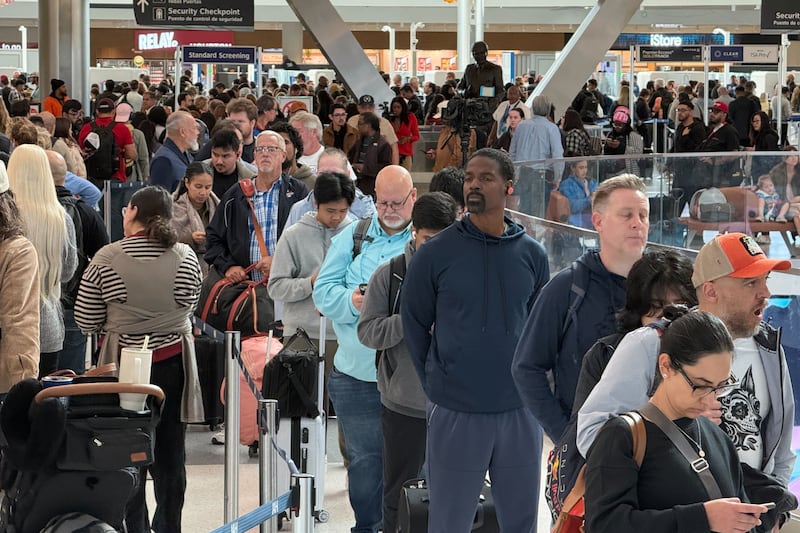WASHINGTON — A number of states are set to hold local and statewide elections on Tuesday, marking the first time there have been major off-year races during a government shutdown — a convergence that is expected to have political implications for both parties.
Two of the biggest races to watch include the governors races in Virginia and New Jersey, where Democrats have advantages in both states that typically act as bellwethers for the midterm elections the following year. That’s especially true for Virginia, which has often served as an indicator for how parties will fare in the midterms as well as a referendum on the president currently in office.
The government shutdown is sure to influence how voters cast their ballots in Virginia, which is home to thousands of federal workers whose paychecks have been frozen, who have been furloughed, and those who have been laid off by the Trump administration.
Democratic candidate Abigail Spanberger has hammered those points throughout her campaign, attacking Republicans and President Donald Trump for high prices and inflation during the first 10 months of his term.
“Donald Trump has spent all year attacking Virginia’s economy — and (Lt. Gov. Winsome Earle-Sears) has spent all year defending him,” Spanberger said in a post on X, referring to her Republican challenger. “Virginians have had enough. It’s time we elect a Governor who will put Virginia — not the President — first.”
But Republicans have been able to use the shutdown to their advantage, too. Earle-Sears has repeatedly criticized Spanberger for siding with congressional Democrats not to support the GOP-led resolution to reopen the government, blaming the minority party for shutting the government down through their use of the filibuster.
Those same issues have been part of the New Jersey gubernatorial race between Democratic Rep. Mikie Sherrill and Republican businessman Jack Ciattarelli.
National polling shows that voters are more likely to blame Trump and the Republican Party at large for the shutdown, with 52% saying it’s the majority party’s fault compared to just 42% who blamed Democrats, according to a recent NBC poll conducted in late October.
Another poll shows that 60% of voters blame Trump for high prices and inflation, with even more disapproving of how the president is handling tariffs and managing the federal government, according to an ABC News/Washington Post/Ipsos poll.
Election night will coincide with the moment that the federal shutdown will become the longest in history, as it will officially pass the 35-day mark — surpassing the current record that was set in Trump’s first term. But once that milestone is passed, Republicans say it could move the needle for Democrats to come to the negotiating table and end the shutdown.


